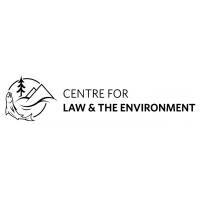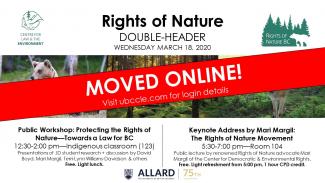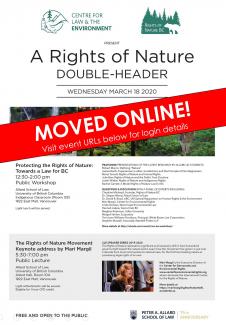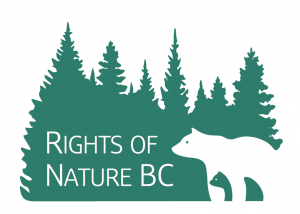Workshop: Protecting the Rights of Nature: Towards a Law for BC

Centre for the Law and the Environment Assistant
Mar 2, 2020

Public Workshop
Protecting the Rights of Nature: Towards a Law for BC
Wednesday, March 18, 2020, 12:30-2:00 p.m.
Free and open to the public. No RSVP required.
THIS EVENT HAS MOVED ONLINE!
To join the event from a computer or mobile device, go to https://bluejeans.com/608208508?src=join_info. When prompted, download and launch the free Bluejeans app.
Is now the time for Rights of Nature legislation in BC? This public workshop features presentations of the latest research on Rights of Nature by Allard JD students, followed by questions and discussion with a panel of distinguished environmental and Indigenous researchers and practitioners including Dr. David Boyd, Mari Margil, Terri-Lynn Williams-Davidson and others.
The workshop will feature presentations of the latest research on Rights of Nature legislation by Allard JD students:
- Robert Munro: Defining “Nature”
- James Barth: International Experiences and Non-Regression
- Marie Turcott: Rights of Nature and Animal Rights
- Julia Roe: Rights of Nature and the Public Trust Doctrine
- Justin Wiebe: Rights of Nature and Indigenous Rights
- Rachel Garrett: A Model Rights of Nature Law for BC
These presentations will be followed by questions and discussion with a panel of experts including:
- Stepan Wood, Canada Research Chair in Law, Society & Sustainability, Director of the Centre for Law & the Environment, Allard School of Law, UBC, http://ubccle.com
- Claudine Michaud, Initiator and Founder, Rights of Nature BC, Entrepreneur/Business Owner, rightsofnaturebc.org
- Mari Margil, Center for Democratic and Environmental Rights
- David R. Boyd, Associate Professor, Institute for Resources, Environment & Sustainability, UBC and UN Special Rapporteur on Human Rights and the Environment
- Linda Nowlan, staff lawyer, West Coast Environmental Law
- Margot Venton, Program Director—Nature, Ecojustice (or an alternate)
- Meghan Robinson, Manager of Community Action & Engagement, Adler University and prospective PhD student, UBC Interdisciplinary Studies
- Terri-Lynn Williams-Davidson (Gid7ahl Gudsllaay), Principal, White Raven Law Corporation
- Stephen Mussell, Associate, Mandell Pinder LLP
- Hannah Askew, Executive Director, Sierra Club BC
- Plus other invited guests including Allard faculty members.
Workshop Rationale
The legal systems of almost all countries, including Canada, treat nature and its components as objects to be owned. Animals, trees, rivers, lakes, mountains, ecosystems and the planet are not legal subjects with responsibilities and rights, but resources to be exploited for human enjoyment. Orcas have no legal right to limit tanker traffic in the Salish Sea or even to survive as a species; Grizzly Bear Spirit and its mountain home of Qat’muk have no legal right to stop the construction of a ski resort; and a forest has no legal standing to object to a clearcut logging permit. Humans and their artificial creations, corporations, stand apart from and above nature. They alone have legal rights and responsibilities.
In this system, is it any surprise that natural systems are degraded or collapsing as a result of human activity? The Rights of Nature movement emerged in reaction to this ecologically destructive logic. This burgeoning global movement recognizes nature and its components—from individual organisms to species, ecosystems and the planet itself—as living beings with legal rights. Their rights include the right to exist, to be respected, to flourish, and to be restored. Humans have a corresponding responsibility to respect and live in harmony with other members of the planetary community.
Ecuador included rights of nature in its 2008 Constitution. Bolivia passed laws protecting the rights of Mother Earth and played a key role in the 2010 adoption of the Universal Declaration of the Rights of Mother Earth. Maori and settler authorities in Aotearoa/New Zealand have crafted innovative laws to recognize the Whanganui river, Mount Taranaki and a former national park as legal persons with enforceable rights. Courts in Colombia have recognized the legal rights of the Atrato river and the Amazon River Ecosystem. Indian courts have done the same for the Ganges river, the glaciers that feed it and the entire animal kingdom.
The idea that nature and its components are living beings and that all members of the planetary community, human and non-human, have rights and responsibilities to one another, has deep roots in many cultures. It resonates with the diverse worldviews and legal orders of many indigenous peoples, who are stewards of the majority of Earth’s remaining biodiversity and are often frontline defenders of land, air, water and living creatures. As a result, protecting the rights of indigenous peoples, including the right to self-government and to free, prior and informed consent, can be an effective way to protect the rights of nature. But it is not clear that the reverse is always true. If rights of nature laws are not designed and implemented appropriately, they could end up being used to infringe indigenous rights and challenge the authority of indigenous laws and governments. This is especially a concern in places like British Columbia, where indigenous peoples retain authority over vast areas and are in the process of revitalizing their governments and laws.
The purpose of this workshop is to bring together a small number of interested individuals from academia, environmental organizations and First Nations to brainstorm about the desirability and viability of a possible campaign to enact rights of nature legislation in British Columbia.
A Rights of Nature Double-Header
This workshop is the first of two events in a Rights of Nature Double-Header. The second event is a public keynote address by global Rights of Nature pioneer Mari Margil. More details about that event at https://marimargilrightsofnaturetalk.eventbrite.ca.

Presented by the Centre for Law & the Environment and Rights of Nature BC
- Centre for Law and the Environment



